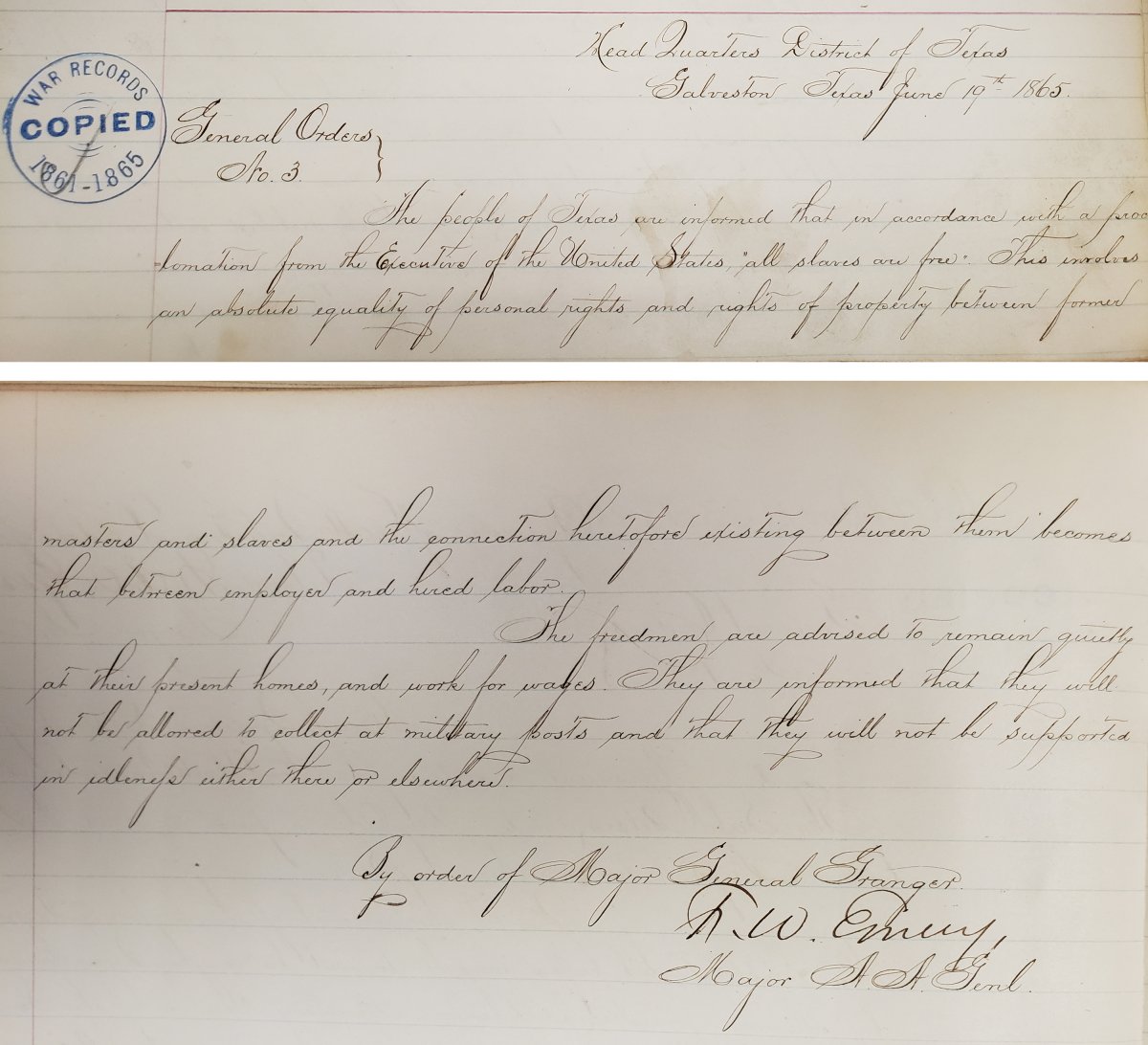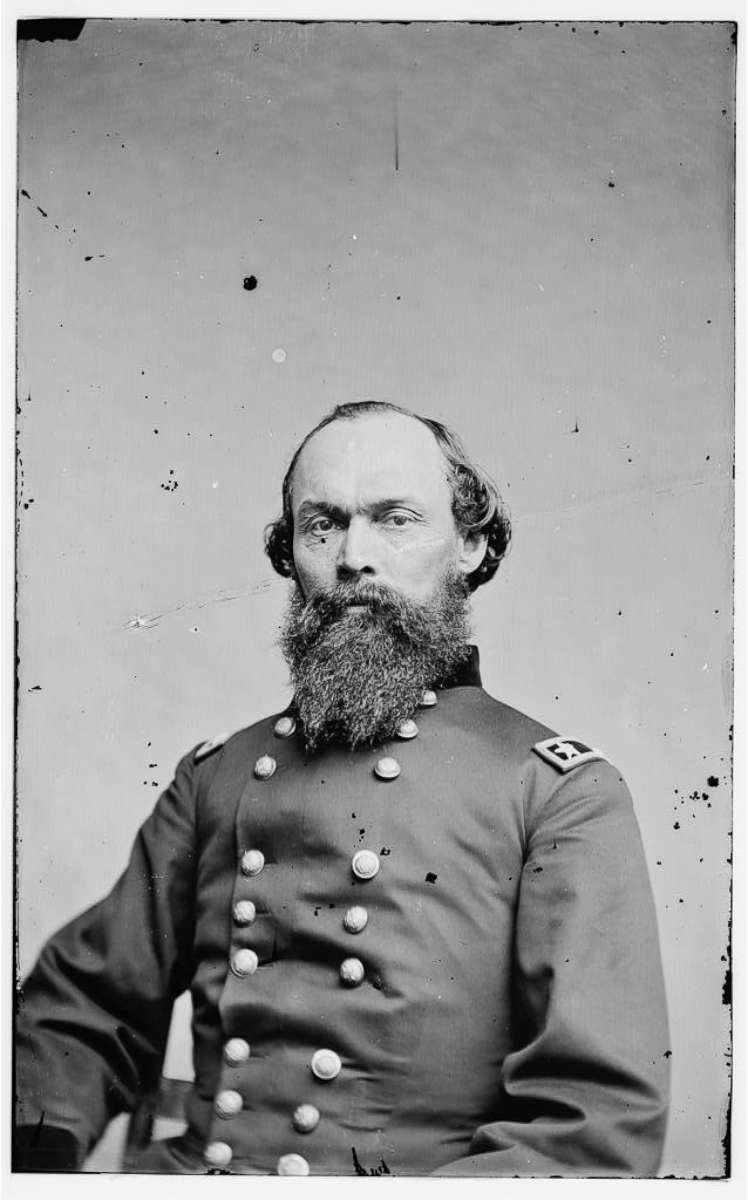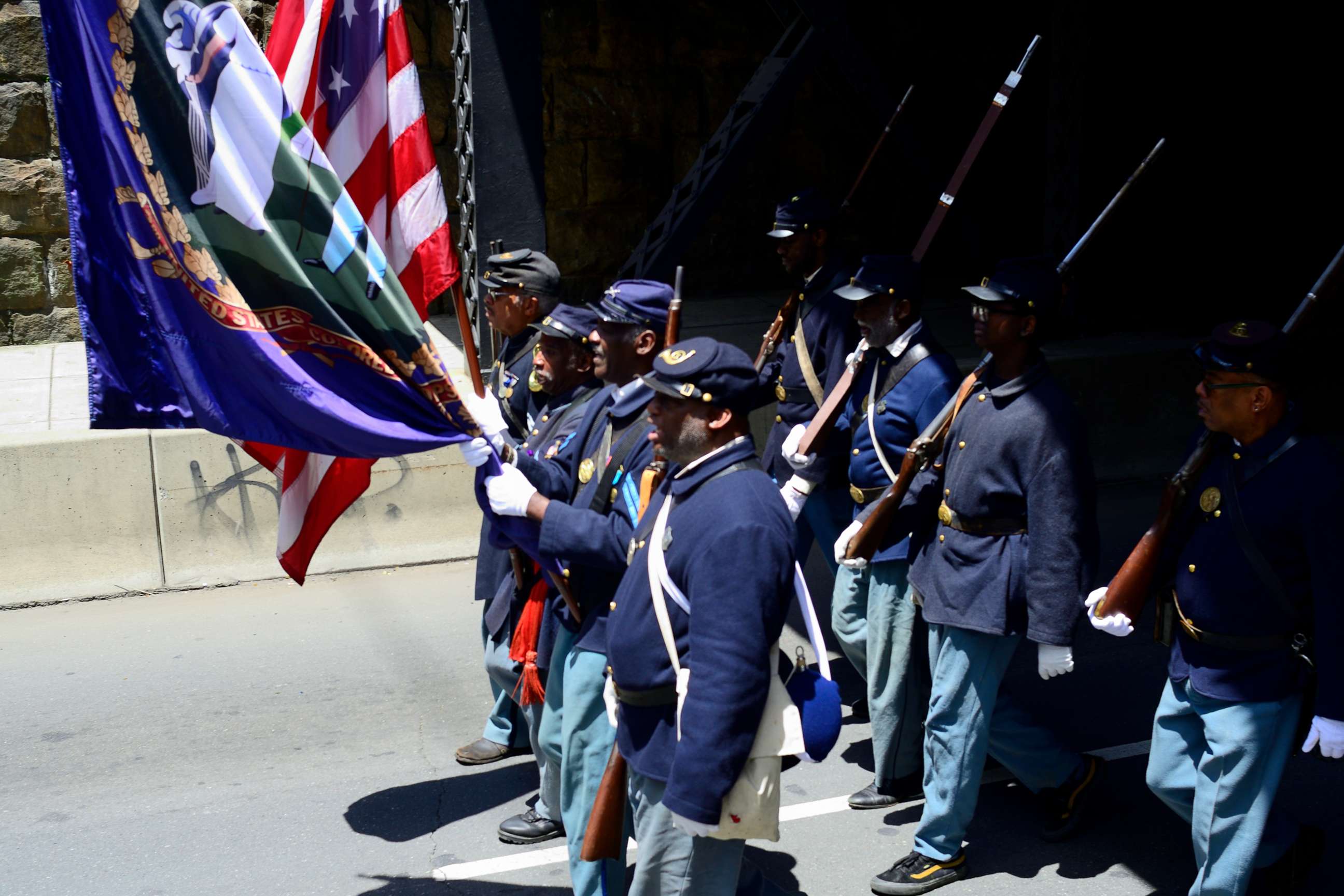An original Juneteenth order freeing slaves found at National Archives
The discovery comes as the country confronts systemic racial injustices.
The National Archives has discovered what it believes to be an original Juneteenth order proclaiming freedom for slaves in Galveston, Texas, in 1865.
While printed versions of the document have existed for years, the handwritten record, recently found by Trevor Plante, director of Archival Operations at the National Archives in Washington, D.C, in an order book housed at the Archives, is believed to predate the rest.
"This is a document stating that we are free now," Public Affairs Specialist Michael Davis, who is African American and writes for National Archives News, told ABC News. "It holds weight to black history."

The order, signed by Union Maj. F.W. Emery on behalf of Gen. Gordon Granger, says, “The people of Texas are informed that, in accordance with a proclamation from the Executive of the United States, ‘all slaves are free.’”
“This involves an absolute equality of personal rights and rights of property between former masters and slaves and the connection heretofore existing between them becomes that between employer and hired labor,” it adds.

The last area of the South to receive news that the U.S. had outlawed slavery in the Confederate states, Galveston freed its slaves 30 months and 19 days after President Abraham Lincoln’s Emancipation Proclamation -- also housed at the National Archives in Washington.
While the order brought slavery to an end in Galveston, the Thirteenth Amendment -- which officially abolished the practice throughout the U.S. -- didn’t take effect until six months later.
The discovery of the Juneteenth letter comes as the country confronts the systemic injustices faced by black Americans in the wake of the killing of George Floyd.
"Researchers come across treasures in our holdings all the time," Plante stated. "This one is very timely for the Juneteenth celebrations happening today."
According to its website, the document will be officially digitized and added to the National Archives Catalog, as well as highlighted on the National Archives and Records Administration's African American History page.

First lady Melania Trump visited the National Archives on Thursday, ahead of Juneteenth. While she saw the Emancipation Proclamation, she had the opportunity to see the newly discovered Juneteenth order, according to the National Archives.
In recent weeks, lawmakers and corporate executives have called for Juneteenth to be recognized as a federal holiday.
On Friday, four Senate Democrats announced legislation to establish the day as a national holiday.




